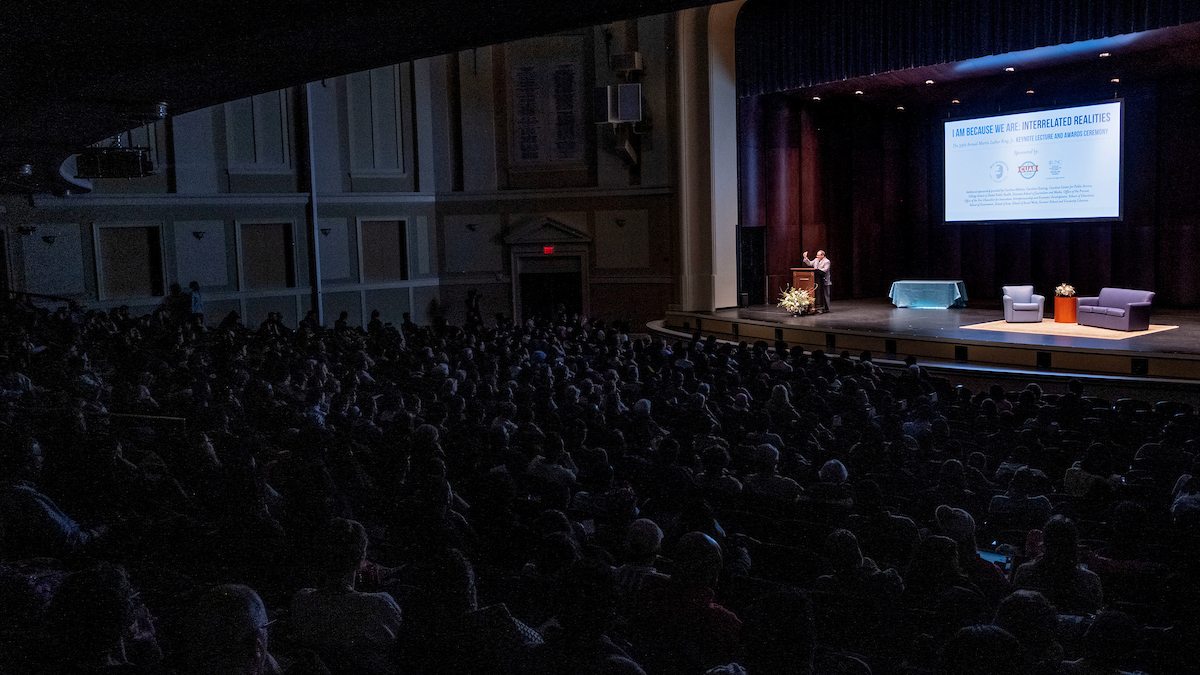Michael Eric Dyson calls for unity and inclusiveness in keynote lecture
Professor, author and radio host Michael Eric Dyson called for recognition of the individual despite differences in race, gender, religion and generation Wednesday in a lecture honoring Martin Luther King Jr.

Drawing on the theme “I Am Because We Are: Interrelated Realities,” inspired by Martin Luther King Jr.’s letter from the Birmingham jail, Georgetown sociology professor, author and radio host Michael Eric Dyson called for the continued fight for recognition of the individual despite differences in race, gender, religion and generation Wednesday in a lecture honoring the civil rights leader.
“It behooves us, in celebrating Martin Luther King Jr., to talk about how we can forge a useful unity, an edifying togetherness, that speaks of commitment not to the eradication of difference but to the magnificent beauty of our individual communities that constitute this great American whole,” Dyson told the crowd of almost 1,000 gathered at Memorial Hall for the annual Martin Luther King Jr. Lecture.
Dyson cited a passage from King’s famous “I Have A Dream” speech, “I have a dream that my four little children will one day live in a nation where they will not be judged by the color of their skin but by the content of their character,” in speaking about the continued profiling and racism minority groups face, explaining that King fought for the possibility that minorities could be treated as individuals.
Dyson, who is a Baptist preacher in addition to his many other accolades, said that the title of his keynote address referenced a theological precedent in the struggle for individuality. Embracing King’s legacy means putting aside any intolerance towards those unlike oneself, even in the case of religion, and extending to class, sexual orientation and age. Dyson challenged the audience with the idea that “We do not have the right to nurse our biases and prejudices against those we may not think are the recipient of God’s grace as we are.”
Embracing King’s legacy requires an end to sexism and toxic masculinity, he said, noting that some of the struggles women faced in King’s time continue to persist, including violence and the pay gap. Women, he noted, played an important part in the civil rights movement. For example, Dyson recounted the story of King giving his “I Have A Dream” speech in 1963 at the Lincoln Memorial and reading from a manuscript, when Mahalia Jackson encouraged him from the wings to instead “Tell them about the dream!” King put down the manuscript and began one of the most famous and often quoted passages in American history.
Dyson tied his theme “I Am Because We Are: Interrelated Realities” to King’s legacy best when he said, “Martin Luther King Jr. is a call for recognition that we are all in this thing together.”




